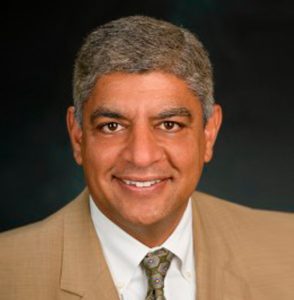SEP 27, 2022
AIRC and DAU Discuss Challenges and Innovation in Acquisition at First Quarterly Research Forum

On September 15, the Acquisition Innovation Research Center (AIRC) and the Defense Acquisition University (DAU) hosted their first joint Quarterly Research Forum. This new series emerged through broadening collaboration between the two organizations and aims to inform DAU faculty of AIRC research and engage academic experts on DAU’s strategic curricula initiatives and challenges.
The forum was organized by Kara Pepe, Director of Operations, SERC/AIRC, and David Gallop Ph.D, Director of Acquisition Workforce Education Partnerships at DAU. Philip S. Antón (AIRC Chief Scientist), Laura Freeman (Director, Intelligent Systems Lab – Hume Center and Research Associate Professor, Statistics Department – Virginia Tech) and Tom McDermott (SERC/AIRC CTO) presented the portfolio of research most relevant to the DAU audience.
DAU Chief of Staff Joe Johnson welcomed the attendees. “This forum unites trends that have been happening in recent years,” Johnson said. “Congress has become consistent in its National Defense Authorizations in that it wants DAU to find best practices that might be brought into the DoD. The scope is, don’t just teach policy, start understanding what needs to be done to shape future acquisition policy. Working with AIRC is one way to do it.”
Antón and Freeman addressed the first of two research topics on the agenda, “Innovative, Data-Enabled Acquisition Strategy.”
Antón outlined challenges for improving acquisition through data, including difficulty sourcing data, operational stovepiping, and security concerns. He explained that a transformation toward digital acquisition depends on the pervasiveness of information across different spectrums, and the use of systems engineering models.
“We use models as a rich representation of the items we are acquiring,” Antón said. “Can we use these models as a way of understanding what the mission effects are? Can we construct portfolios of models to see how many different systems we want to buy? Can we use models as a richer understanding of what we’re acquiring with better cost estimates, faster cost estimating? There are several activities that system engineers have been working on that could be a basis for changing the way we do some of these functions.”
Freeman presented AIRC research on improving data use and established that successful organizations own their data, build in collection processes to their everyday processes, and build data management and analysis tools. She contrasted these steps with the DoD’s structure of data calls, which are less proactive and risk gaps in obtaining available information.
“Decision makers are using data analysis to drive decisions,” Freeman said. “That’s a reinforcing concept in this whole lifecycle, because if no one is using the data, it will get stale. It’s an interesting contrast with what’s going on in the DoD right now. (Deputy Secretary of Defense Dr. Kathleen) Hicks talks about data as an enterprise resource, of establishing data ownership and how data is a resource for all. The question is then how we build it into our everyday processes so we get away from these data calls and build analytical capability.”
Freeman explained that AIRC is developing tools to enable academic researchers to guide decision makers, including a pilot platform for securely hosting and analyzing unclassified and CUI-level data. She also cited the Defense Data Grand Prix, a competition AIRC holds for faculty-led student teams to tackle DoD problems using data science.
“We’re trying to bring the scale of academic research, statistics, data science, machine learning and AI to bear on DoD problems,” Freeman said.
For the second agenda topic, McDermott presented ongoing AIRC research into “Systems Engineering Modernization.” He explained that while various aspects of acquisition have modernized and evolved, they lack integration.
“In the 1970s, most of what we acquired were large, monolithic, physical systems,” McDermott said. “Today, much of what we acquire is software or IT systems. These areas of software systems engineering, IT architectures, distributed models and simulations for operational analyses, and automated manufacturing have evolved as stovepipe disciplines. They all have taken system engineering and made their own flavors of it, which is a good thing, but we want to see some convergence again.”
McDermott said the research will continue collecting and analyzing data into 2023, with the aim to understand pain points and develop an integration framework for the digital transformation of acquisition.
“When we began this program, we didn’t know what would come out the other end,” McDermott said. “What we found is that systems engineering modernization and related focus areas are driving a more significant shift for acquisition than envisioned by any single initiative. We’ll have a series of workshops for the next few months to involve the community as we work through this evolution and build a set of roadmaps.”
The Quarterly Research Forum concluded with a Q&A on “Future Trends in Acquisition” led by Glenn Lamartin of DAU with Antón, Freeman, and McDermott, and a presentation titled “New Certification Overview and Challenges” by Scott Bauer of Human Capital Initiatives OUSD(A&S).
The forum presentations are available on the DAU website. The next forum will be scheduled for December 2022. Follow AIRC on LinkedIn for updates and other news on acquisition innovation.





